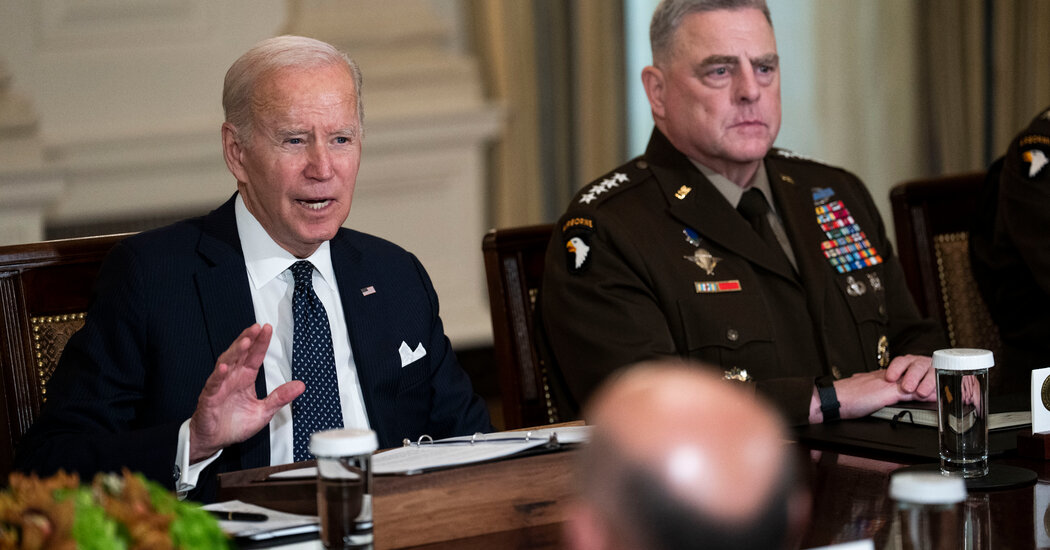
“We have enjoyed and continue to enjoy terrific bipartisan support for our approach to Ukraine and the kinds of security assistance that we’re providing, and we’re going to need that support going forward,” Mr. Kirby said. “The president’s not worried about that.”
Biden allies said Democrats had proved to be self-correcting when it came to the progressives’ letter but urged the president to explain his strategy to the public and the stakes involved.
“This is a difficult and dangerous situation that requires staying power and to some extent sacrifice on the part of the United States,” said Representative Tom Malinowski, Democrat of New Jersey and a staunch supporter of Ukraine aid. “It’s always important for the president to be making the case to Congress and to the American people that this is in the national interest and the right thing to do.”
Still, as the war grinds on, in Europe it feels more and more like an American venture. American contributions of war matériel and money exceed those of all the other allies put together, and American strategy choices are dominant, aided by the brutality of the Russian war, the bravery of the Ukrainian government and military and Mr. Putin’s clear disinterest in negotiations, let alone a Russian withdrawal.
In these European countries, there is quiet worry that Ukraine will do so well as to drive Mr. Putin into a desperate gamble of escalation — a worry not unknown in Washington, too. For the Germans and the French, a settlement along the lines that existed before the Feb. 24 invasion would seem quite sufficient — a defeat for Mr. Putin but not a rout. The fear is that too big a loss of face for Russia would push Mr. Putin into using nuclear weapons in some fashion, or a “dirty bomb” conventional explosive with radioactive material that could be blamed on the Ukrainians in order to justify a significant escalation.
That is a major reason that Germany and France seem to be carefully calibrating the sophistication of the weapons they send to Ukraine, as Mr. Biden does too. Europe has pretty much run out of Soviet-era weapons to send to Ukraine, and its own stocks, intended for its own defense, are also low, a function of the post-Cold War “peace benefit” that caused military spending to plummet all over the continent, a trend only slowly being reversed in earnest.
There is a significant disparity between the flood of arms supplied by the United States, Britain, and Poland and what the rest of Europe is providing, which has raised the persistent question of whether some countries are slow-walking supplies to bring about a shorter war and quicker negotiations.




